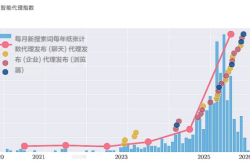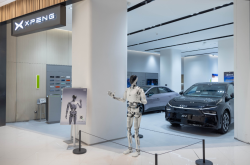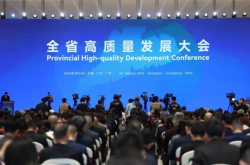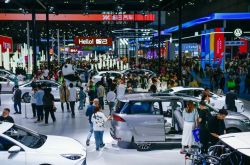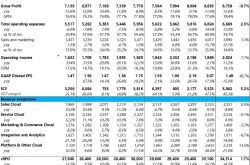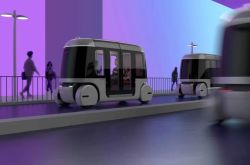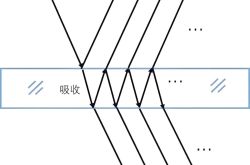TARobot: Revolutionizing Cleaning with "Autonomous Brains" - Can Cleaning Robots Achieve Global Stardom?
![]() 07/07 2025
07/07 2025
![]() 839
839
Do you still envision cleaners wielding massive brooms, tirelessly sweeping under the blazing sun or biting winds?
But today, a Hangzhou-based company challenges this notion: cleaning tasks should have long been relegated to high-tech solutions.
TARobot, a pioneering player in the commercial cleaning robot industry for nearly a decade, has daringly infused autonomous driving technology into sweeping robots. Not only has it secured the "2025 Most Influential Zhejiang Merchants Brand" title, but it has also propelled domestic cleaning robots into 16 countries, accumulating a cleaning mileage of nearly 100 million kilometers—enough to circle the Earth's equator 250 times.
Today, Let's Talk Self-driving Cars (Public Account: Let's Talk Self-driving Cars) delves into this fascinating story!
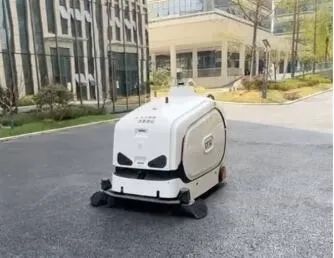
Source: Company Website
Decade of Innovation: Merging Autonomy with Cleaning Robots
In 2015, when "autonomous driving" was predominantly associated with the automotive sector, TARobot took an unconventional step: it dismantled this technology and seamlessly integrated it into commercial cleaning equipment.
This bold move made TARobot the first domestic enterprise to venture into the realm of autonomous cleaning robots.
Today, its "SMARTWAY3.0 Navigation System" and "SyncNet Intelligent Control Platform" serve as the "super brains" of these cleaning robots. They achieve centimeter-level positioning accuracy, enabling them to navigate bustling airports, avoid travelers dragging suitcases, and meticulously clean along wall corners, even reaching dust in the tiniest cracks.
At Hangzhou Xiaoshan Airport, a TARobot encountered a falling beverage bottle. Before staff could react, it swiftly maneuvered around the obstacle and resumed work, astonishing onlookers.
Even more impressive is the "Continue Sweeping after Power Failure" feature. Unlike cleaners who must remember where they left off when their batteries die, TARobots restart precisely where they left, maintaining the cleaning route without interruption.
These systems are not mere theoretical constructs; they are backed by nearly a decade of rigorous technical refinement and hold national invention patents.
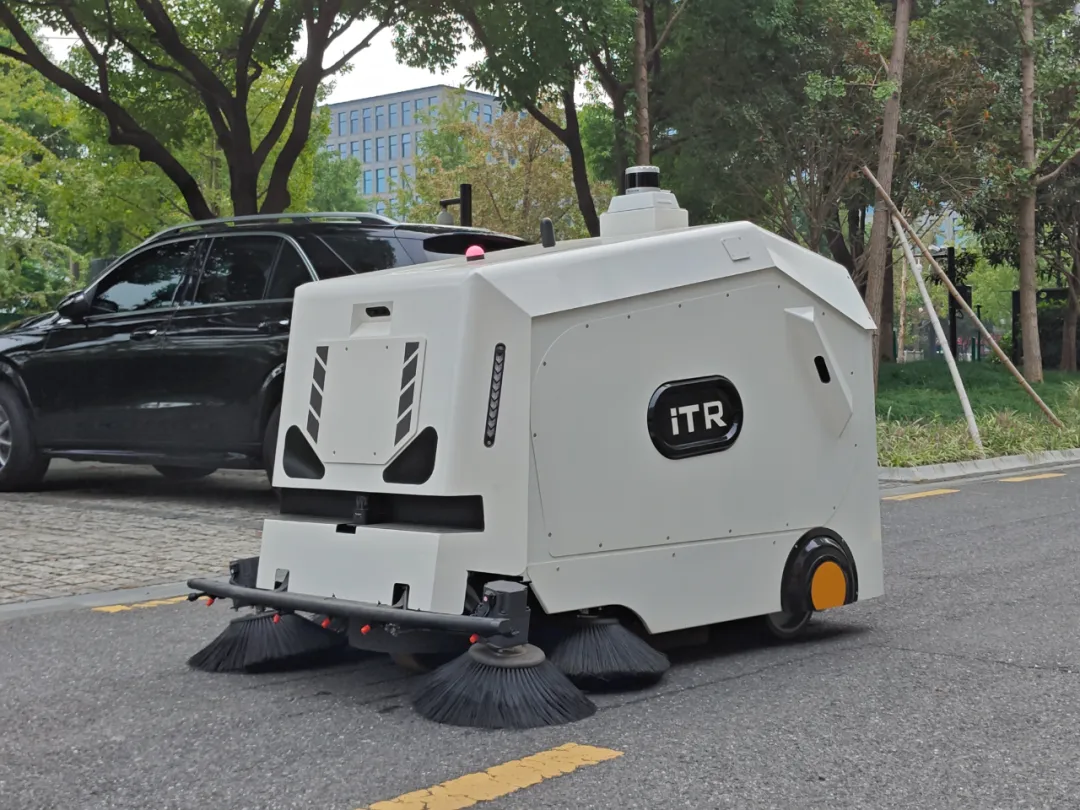
These robots now extend beyond basic floor sweeping.
The M2Pro autonomous floor scrubber efficiently handles large oil stains, leaving shopping mall food areas gleaming. The iTRmop intelligent sweeper operates quietly in hospital wards, ensuring patients' rest is undisturbed. The W1 outdoor sweeper is particularly impressive, capable of climbing slopes and obstacles in residential areas, even accurately targeting and cleaning pet feces.
Collectively, these robots have traveled nearly 100 million kilometers, equivalent to cleaning workers walking around the Earth 250 times—an efficiency traditional cleaning services can only admire.
Beyond Machines: Prescribing "Technological Prescriptions" for the Cleaning Industry
"We don't sell equipment; we prescribe solutions tailored to scenarios," states TARobot Chairman Pan Xin, revealing the company's survival logic.
After years in the cleaning industry, TARobot deeply understands traditional cleaning services' pain points: recruitment difficulties, low efficiency, and inconsistent standards, particularly in high-demand environments like airports and hospitals.
TARobot's solution lies in a "device + data + service" model.
Consider a top tertiary hospital in Beijing. Previously, 30 cleaning staff worked in shifts, yet complaints about "unclean corners" persisted. After deploying TARobots, five machines handle public areas, while staff focus on detailed ward cleaning. The SyncNet Intelligent Control Platform provides real-time cleaning trajectory and coverage data, allowing hospital management to "cloud supervise" from their offices.
Over a year, the hospital's cleaning costs dropped by 28%, and complaints vanished.
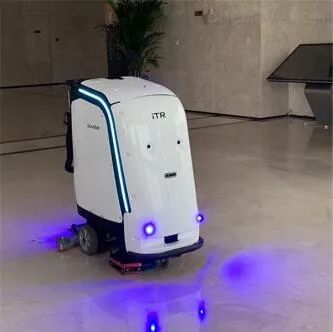
This model has firmly established TARobot in over 400 scenarios.
At Shanghai Pudong Airport, the robot team starts work punctually at 3 am, ensuring the departure hall is spotless by the time passengers arrive. In smart communities, sweeping and security robots collaborate, with the latter helping "clear the field," even deterring mischievous kids from chasing the robots.
These cases are backed by solid data, demonstrating efficiency gains and cost reductions.
From Hangzhou to the World: Cleaning Robots as "International Internet Celebrities"
After mastering domestic scenarios, TARobot ventured overseas, now present in 16 countries and regions.
Interestingly, these "Made in China" cleaning robots have become "technological internet celebrities" abroad.
At Munich Airport in Germany, TARobots drew immediate crowds upon their debut. Locals were astounded by the robots' intelligence, from self-charging to understanding German instructions (via system settings).
At the ISSA/INTERCLEAN North America trade show in Las Vegas, the M2Pro floor scrubber demonstrated "instant oil stain removal," securing 50 on-spot orders from local agents.
The robots' global success hinges on technology and localized "tricks": anti-corrosion measures for Southeast Asia's hot, humid regions; battery life optimization for cold European and American environments.
Even more engaging is their "TARobot Baymax" IP. Beyond stickers, they've created an anime character, posting robot "vlogs" on overseas social media, such as "Baymax helped a passenger pick up a wallet at the airport" or "Baymax encountered a cute squirrel while snow-sweeping."
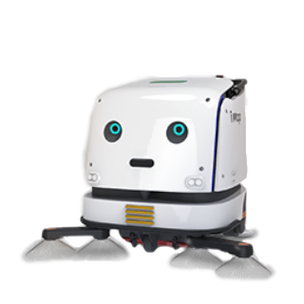
This down-to-earth interaction makes foreign users feel a "warmth" from the machines, enhancing brand favorability.
TARobot now boasts 9 subsidiaries worldwide, with production bases in Zhejiang and Sichuan, branches in Jiaxing, Shenzhen, and Montreal, Canada, and service outlets in Singapore. They engage with government projects and leading property management companies domestically and penetrate international markets through localized agent networks, ensuring stable and rapid growth.
Transforming Cleaning into a "High-Tech Race": Where Next for TARobot?
Winning the "2025 Most Influential Zhejiang Merchants Brand" signifies TARobot's past achievements and future ambitions.
The cleaning industry may seem traditional, but with "autonomous" and "intelligent" enhancements, it becomes an appetizing tech prospect.
TARobot's next moves are well-planned:
Collaborate with the Korea Institute of Industrial Technology to develop multi-robot collaboration. In the future, shopping mall robots for sweeping, scrubbing, and window cleaning can "team up," with one robot notifying the charging station if another runs low on battery.
Strengthen the "professional, safe, and intelligent" brand label, showcasing at international exhibitions to amplify the voice of "Made in China" cleaning robots.
Consolidate domestic smart property management and municipal environmental sanitation advantages, deepen cultivation in European, American, and Southeast Asian markets, and expand the realm of "cleaning intelligence."
They also eye household and special scenarios. The 2024 overseas household market plan introduces unmanned snowplows and lawn mowers, sparing foreigners from winter shoveling and summer lawn mowing.
For municipal environmental sanitation, they'll invest in outdoor robots adaptable to complex road conditions, potentially making urban street cleaning a realm for these "steel cleaners."
From integrating autonomy into cleaning equipment in 2015 to robots spanning 16 countries, TARobot's story proves: there are no traditional industries, only traditional ways of thinking.
In summary, Let's Talk Self-driving Cars (Public Account: Let's Talk Self-driving Cars) believes:
As sweeping robots compete in "autonomous algorithms" and cleaning workers become "robot commanders," this unassuming industry is quietly being reshaped by technology. And TARobot aims to be the frontrunner wielding the "technological paintbrush."
What do you think?
Note: This article has been slightly edited, and the title has been modified.
#Let's Talk Self-driving Cars #Self-driving #Autonomous Driving #Self-driving Car #Robot Vacuum Cleaner

